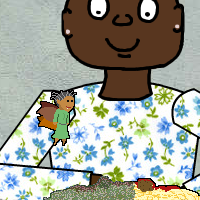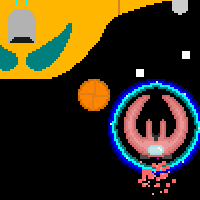Over the past couple of months, I’ve been running a mostly-weekly Dungeons & Dragons Fourth Edition game over the internet using MapTool and TeamSpeak. Generally, these tools have served us well, with the biggest problem being the voice chat; it makes conversation flow very awkward, with some people stumbling over other people’s sentences due to lag, and other people often unintelligible due to mic issues. MapTool is a bit clumsy, but it gets the job done.
For a while, I’ve wanted to run a tabletop game where the play shifted between a dark, gritty, waking struggle for survival and a wondrous, fanciful dream world that the player characters entered when they slept. This is not that campaign, but it uses the “dream world” motif that I’ve incorporated into several of my games. Below the fold, I’ll give a summary of the first part of the campaign for those who are interested.
Before then, however, I should discuss my current feelings on D&D4e. First, the combat system is a lot of fun and very slick, but it requires a lot of effort and attention to keep it from becoming a tactical strategy game. In the game so far, players basically just say “I’m using Scorching Burst” or “I’ll do a Deft Strike.” I much prefer a game where players describe their actions with more flavor and color, and often do actions that aren’t straight from their power list. I’ll work to encourage this in the future.
Second, I still don’t have a handle on Skill Challenges. They make sense on paper: a way to structure non-combat encounters to have the same randomness, flow, and structure as combat encounters. However, in practice they feel very clunky. Twice I’ve had a single character take lead on a major NPC conversation, and instead of having them make repeated Diplomacy checks, I’ve just roleplayed it out. Maybe I need to make the Skill Challenge mechanics more explicit; maybe I need to abandon them altogether.
Finally, the XP system feels slow. Ten encounters between levels is a lot. I’ll be giving double experience in 4e in the future, just to restore a sense of progression to the game.
Now, for the story so far. This is the first half of level 1.
Continue reading Dream Project 1.0: The Flight from Zekleinenezzar →



